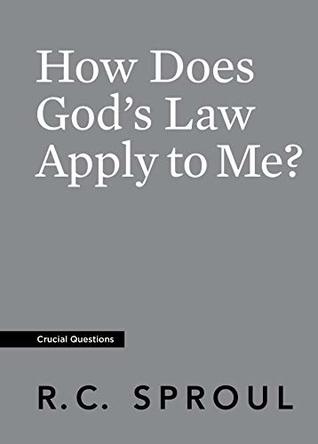More on this book
Community
Kindle Notes & Highlights
by
R.C. Sproul
Read between
March 17 - March 18, 2022
In addition, Rome claimed that the Virgin Mary should receive not only dulia, but hyperdulia. Not only is service to be rendered to Mary, but an extreme form of service is to be given to her. That was part of the protest of the Reformation.
The heart of the matter of the second commandment is basically the same as that of the first commandment: we are to honor God as He is, not making any substitute that would direct or deflect our attention and worship away from Him.
In every age, in every generation, and in every religious denomination, there is a pervasive and perennial danger that faith will become infused with superstitious elements. This problem of mixing religion with superstition has been present since the fall of man, and no religion in the world is completely free of superstition. As man has a propensity toward idolatry, he also has a certain fascination toward magic.
Let God be God, and let us worship Him and live in His presence according to His Word.
What does it mean to take the name of the Lord in vain? In the English language, the word vanity is used as a synonym for pride or narcissism, but when the Old Testament speaks of vanity, it is a synonym for futility. Therefore, the command means that God’s name is sacred and not to be treated in a cavalier or trivial manner, but rather in a careful and guarded way.
The third commandment also extends beyond these obvious violations to ones that would be less apparent to us today (but which would have been clear to the Old Testament Jews). God’s name can also be taken in vain in the use of vows and oaths. Because of the propensity of human beings to break promises and violate each other’s trust, promise-making was elevated to a higher degree of seriousness in ancient Israel, where the promise was sanctified by an oath or a vow. A promise was not just a casual statement of intent but a solemn declaration.
More than once in the New Testament, theApostle Paul gives testimony and swears to his truthfulness by taking an oath in the name of God. Oaths such as these are legitimate, but swearing by the earth, by the heavens, or on our mothers’ graves is not, because when we swear by such things, we are slipping into a form of idolatry. If a person swears on his mother’s grave to verify his words, his mother’s grave has no power to enforce that promise. It is an empty promise. And when we swear by things that are less than God, we attribute to those things the very power of God Himself. We act as
...more
When we swear by God, we are acknowledging Him to be God; thus even in this commandment, we see a reinforcement of the same concern present in the first and second commandments—namely, the prohibition against all forms of idolatry.
A final way in which this prohibition is violated is in attributing to the name of God impulses and direction that don’t come from Him at all.
If we ever say to another person that God told us to do or say something, we had better have sound reason for doing so. Otherwise, we’re violating the third commandment.
The first thing that makes the Sabbath different, unusual, or extraordinary is seen in Scripture’s emphasis on the Sabbath as a day of rest. This does not mean that we are to sleep all day or spend twenty-four hours in total inactivity. Instead, it denotes a rest from normal labor, and as such, the Sabbath is an imitation of God’s actions in creation, wherein He labored over six successive days and rested on the seventh. One of the reasons we rest is to reflect the image of God and to remember our Creator and His labor of creation—we’re honoring God, not indulging ourselves.


